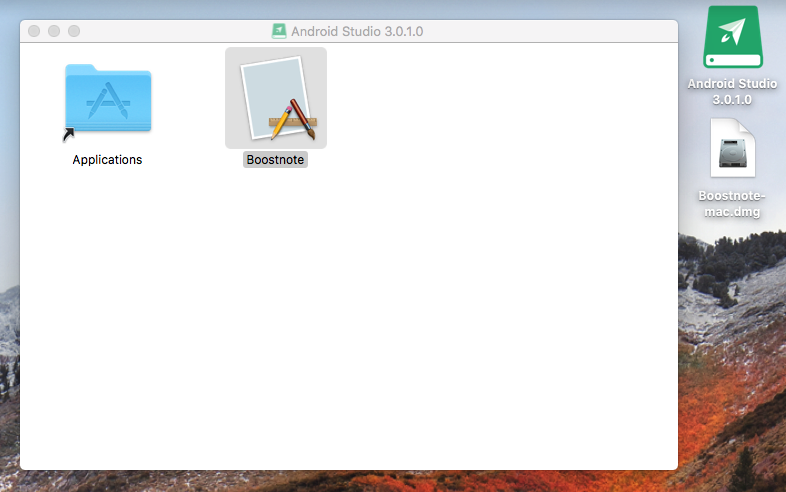As of this writing, MM is using the Boost 1.40 release. There are reasonably complete instructions here: http://www.boost.org/doc/libs/1_40_0/more/getting_started/unix-variants.html
Unless your compiler is different than the one supplied with the Mac XCode Dev tools, just follow the instructions in section 5.1 of Getting Started Guide for Unix Variants. The configuration and building of the latest source couldn't be easier, and it took all about. Windows 10 comes with the older Windows-only edition (version 5.1), but you can download the latest PowerShell (7) on GitHub. Assuming you have a newer PC, you'll want to download PowerShell-7.1.1-win-x64.msi which is the 64-bit Windows installer.
Briefly:
- Download boost 1.40.0
- tar --bzip2 -xf /path/to/boost_1_40_0.tar.bz2
- ./bootstrap.sh, (to build the bjam tool)
- Now to build only the libraries needed by Micro-Manager (a huge time saver), do:
sudo ./bjam --install --link=static --runtime-link=static --threading=multi --layout=tagged --with-system --with-thread --with-iostreams --with-date_time
(Now when building micromanager, configure should have the flag:--with-boost-libdir=/path/to/your/boost/libs)
If you wish to build Universal Binaries, you will need to build boost separately for each architecture. You can do so with the following build script:
# Note: build for ppc and i386 should be with g++4.0. Build for x86_64 should be with g++4.2.
# to accomplish this, the file tools/build/v2/user-config.jam should contain the following two lines:
# using darwin : 4.0 : g++-4.0 ;
#
# using darwin : 4.2 : g++-4.2 ;
sudo ./bjam --install --build-dir=ppc --toolset=darwin --link=static --runtime-link=static --threading=multi --layout=tagged --prefix=/usr/local/ppc architecture=power address-model=32 macosx-version-min=10.4 --with-system --with-thread --with-iostreams --with-date_time --libdir=/usr/local/ppc/lib --includedir=/usr/local/ppc/include --stagedir=/usr/local/ppc
sudo ./bjam --install --build-dir=i386 --toolset=darwin --link=static --runtime-link=static --threading=multi --layout=tagged --prefix=/usr/local/i386 architecture=x86 address-model=32 macosx-version-min=10.4 --with-system --with-thread --with-iostreams --with-date_time --libdir=/usr/local/i386/lib --includedir=/usr/local/i386/include --stagedir=/usr/local/i386
sudo ./bjam --install --build-dir=x86_64 --toolset=darwin-4.2 --link=static --runtime-link=static --threading=multi --layout=tagged --prefix=/usr/local/x86_64 architecture=x86 address-model=64 macosx-version-min=10.5 --with-system --with-thread --with-iostreams --with-date_time --libdir=/usr/local/x86_64/lib --includedir=/usr/local/x86_64/include --stagedir=/usr/local/x86_64
Is your Mac up to date with the latest version of the Mac operating system? Is it using the version required by a product that you want to use with your Mac? Which versions are earlier (older) or later (newer, more recent)? To find out, learn which version is installed now.
If your macOS isn't up to date, you may be able to update to a later version.
Which macOS version is installed?
Boostio Mac Os X
From the Apple menu in the corner of your screen, choose About This Mac. You should see the macOS name, such as macOS Big Sur, followed by its version number. If you need to know the build number as well, click the version number to see it.
Mac Os Catalina
Which macOS version is the latest?

These are all Mac operating systems, starting with the most recent. When a major new macOS is released, it gets a new name, such as macOS Big Sur. As updates that change the macOS version number become available, this article is updated to show the latest version of that macOS.
If your Mac is using an earlier version of any Mac operating system, you should install the latest Apple software updates, which can include important security updates and updates for the apps that are installed by macOS, such as Safari, Books, Messages, Mail, Music, Calendar, and Photos.
| macOS | Latest version |
|---|---|
| macOS Big Sur | 11.3 |
| macOS Catalina | 10.15.7 |
| macOS Mojave | 10.14.6 |
| macOS High Sierra | 10.13.6 |
| macOS Sierra | 10.12.6 |
| OS X El Capitan | 10.11.6 |
| OS X Yosemite | 10.10.5 |
| OS X Mavericks | 10.9.5 |
| OS X Mountain Lion | 10.8.5 |
| OS X Lion | 10.7.5 |
| Mac OS X Snow Leopard | 10.6.8 |
| Mac OS X Leopard | 10.5.8 |
| Mac OS X Tiger | 10.4.11 |
| Mac OS X Panther | 10.3.9 |
| Mac OS X Jaguar | 10.2.8 |
| Mac OS X Puma | 10.1.5 |
| Mac OS X Cheetah | 10.0.4 |